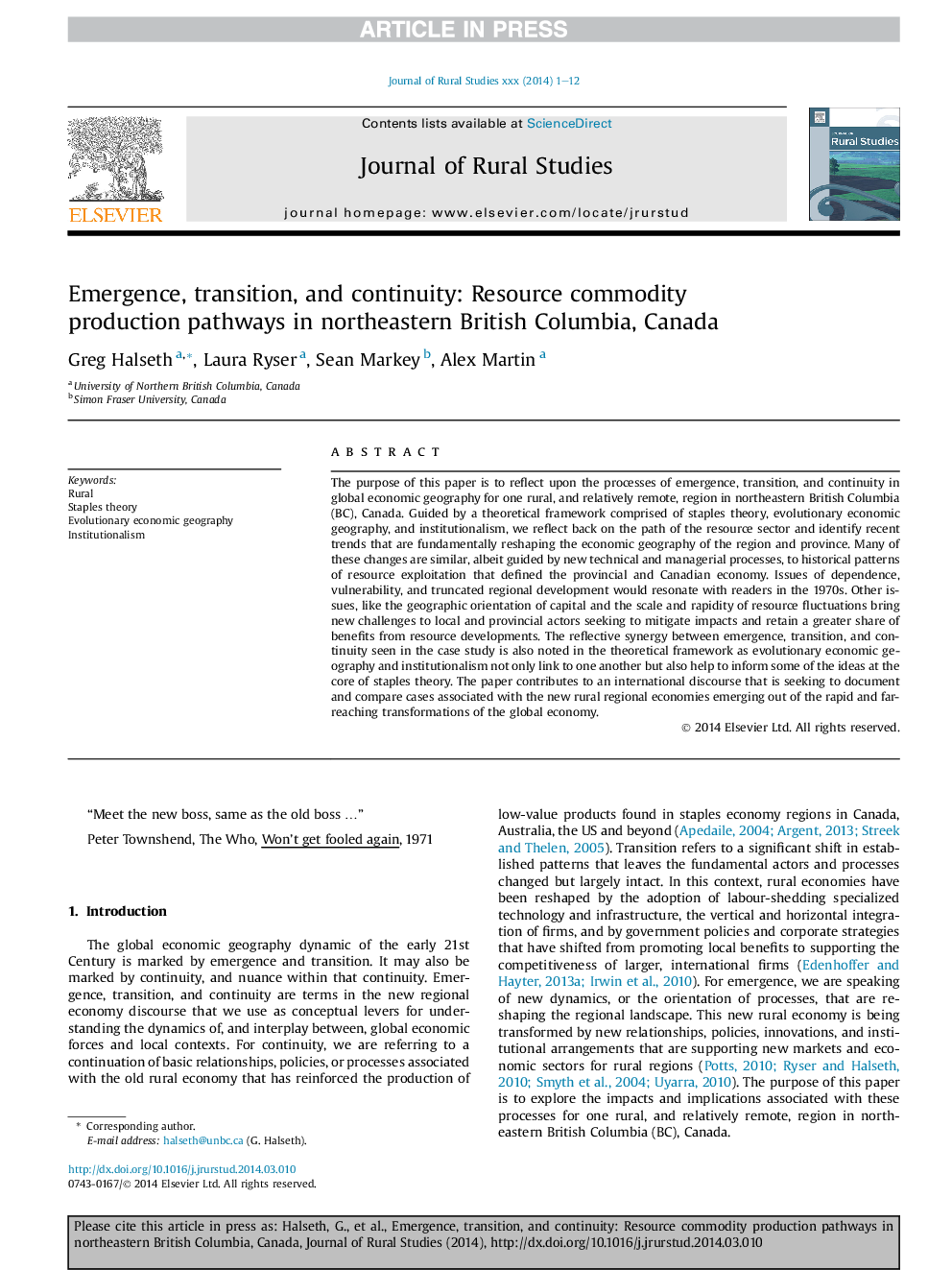| Article ID | Journal | Published Year | Pages | File Type |
|---|---|---|---|---|
| 6545769 | Journal of Rural Studies | 2014 | 12 Pages |
Abstract
The purpose of this paper is to reflect upon the processes of emergence, transition, and continuity in global economic geography for one rural, and relatively remote, region in northeastern British Columbia (BC), Canada. Guided by a theoretical framework comprised of staples theory, evolutionary economic geography, and institutionalism, we reflect back on the path of the resource sector and identify recent trends that are fundamentally reshaping the economic geography of the region and province. Many of these changes are similar, albeit guided by new technical and managerial processes, to historical patterns of resource exploitation that defined the provincial and Canadian economy. Issues of dependence, vulnerability, and truncated regional development would resonate with readers in the 1970s. Other issues, like the geographic orientation of capital and the scale and rapidity of resource fluctuations bring new challenges to local and provincial actors seeking to mitigate impacts and retain a greater share of benefits from resource developments. The reflective synergy between emergence, transition, and continuity seen in the case study is also noted in the theoretical framework as evolutionary economic geography and institutionalism not only link to one another but also help to inform some of the ideas at the core of staples theory. The paper contributes to an international discourse that is seeking to document and compare cases associated with the new rural regional economies emerging out of the rapid and far-reaching transformations of the global economy.
Related Topics
Life Sciences
Agricultural and Biological Sciences
Forestry
Authors
Greg Halseth, Laura Ryser, Sean Markey, Alex Martin,
